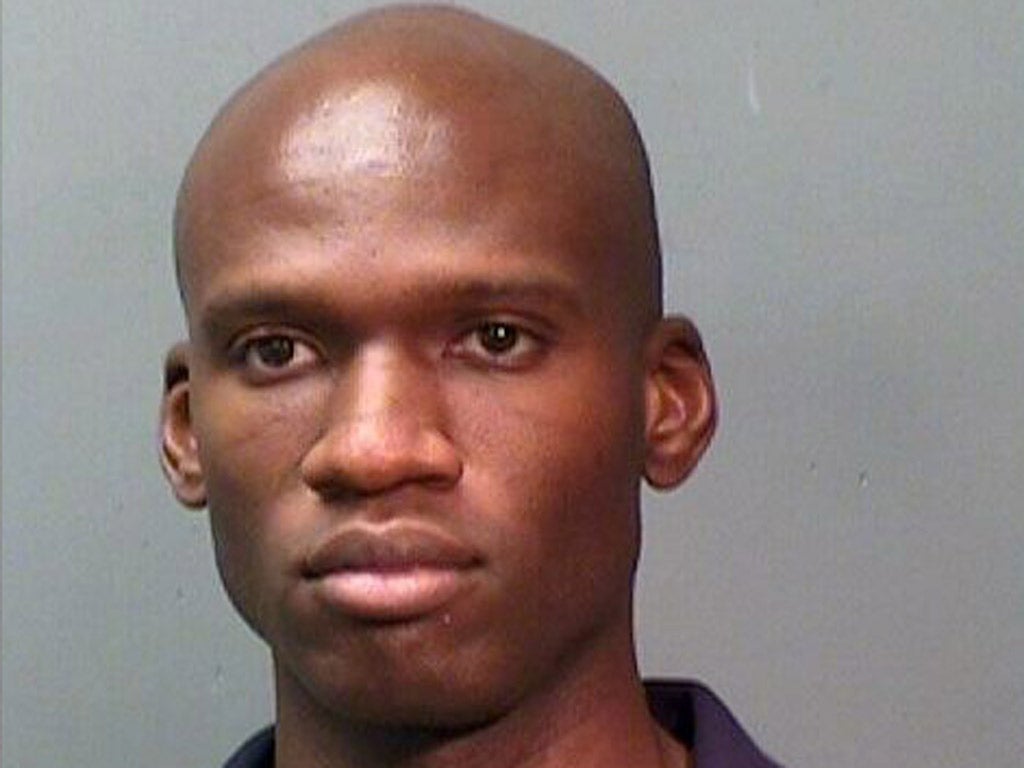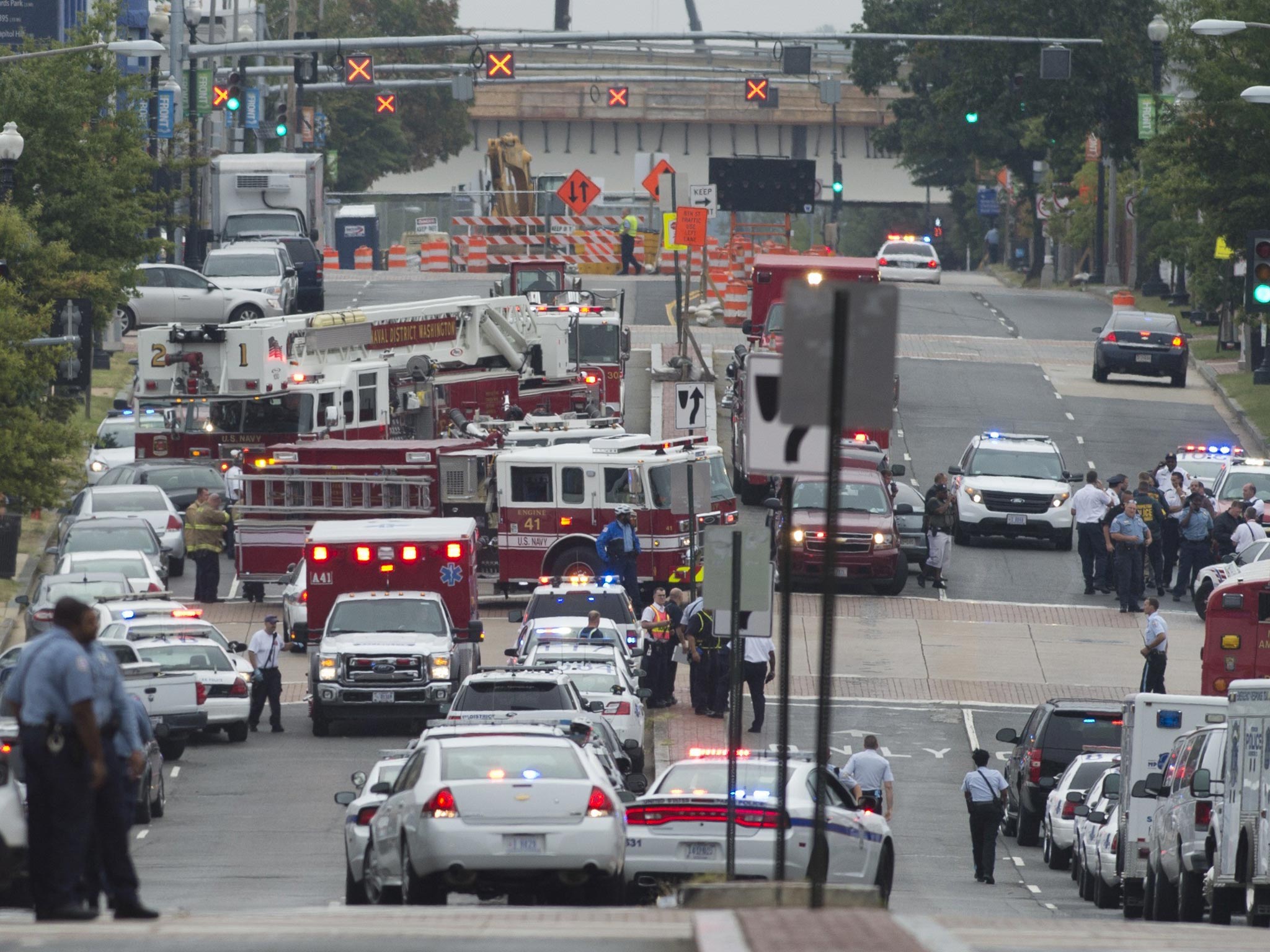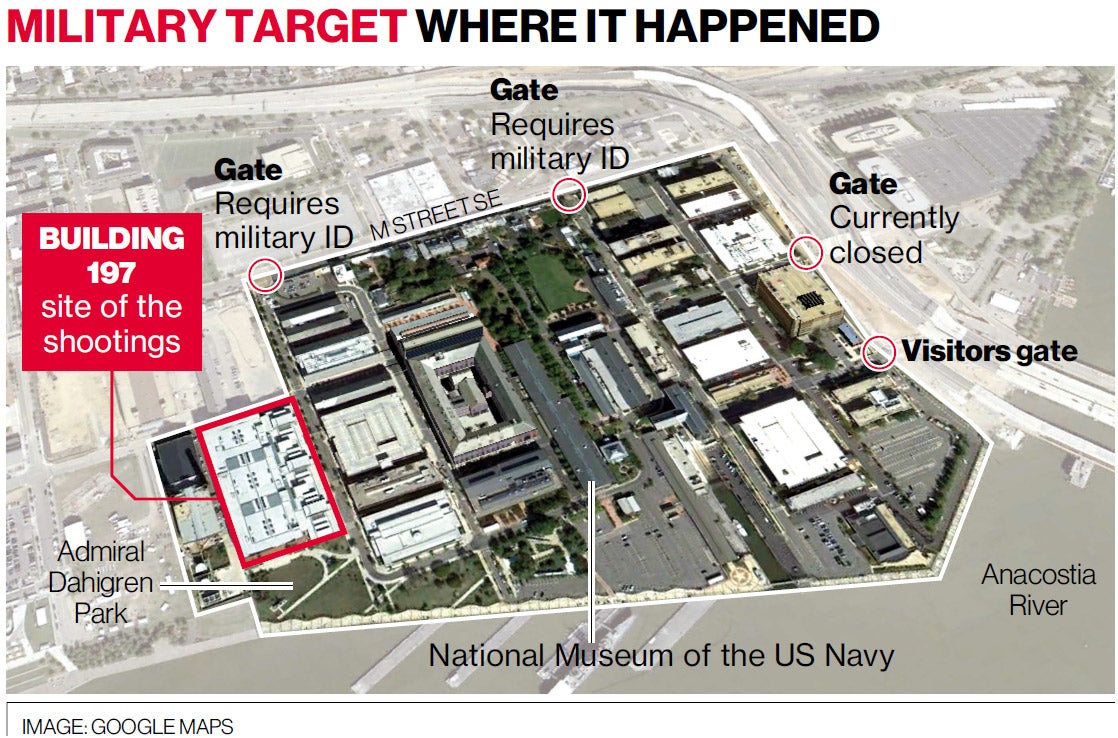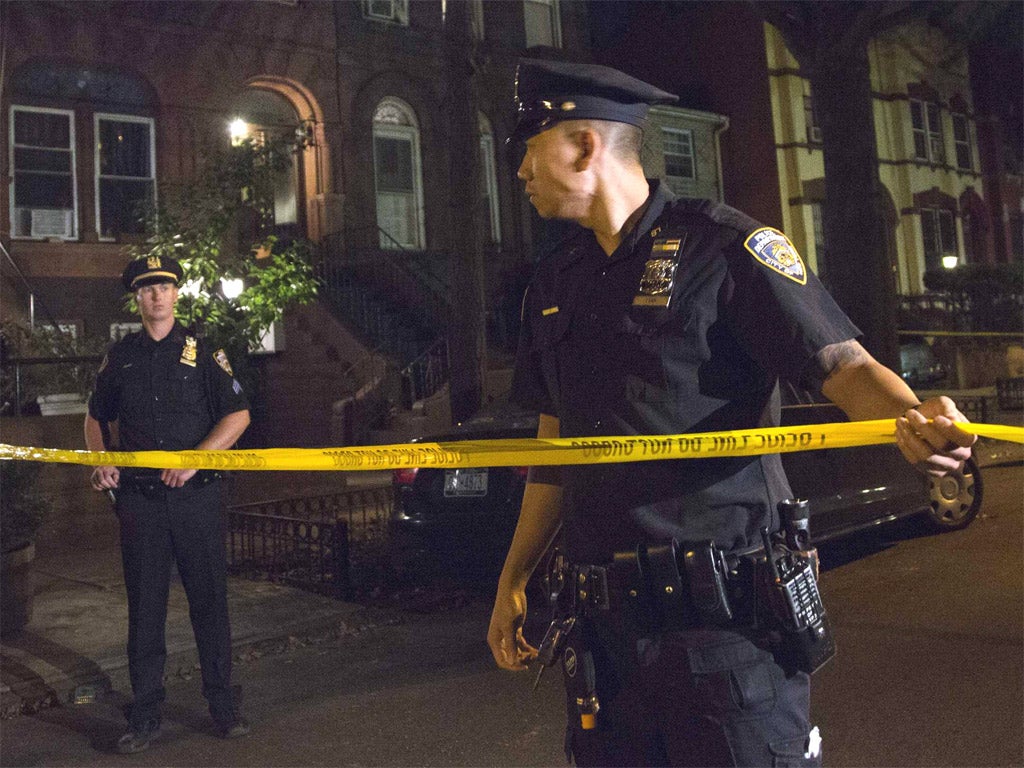Washington Navy Yard massacre: How the scars of 9/11 turned Aaron Alexis into a mass killer
David Usborne uncovers the troubled mental state of Aaron Alexis and asks: how was he allowed to work on a naval base?

Your support helps us to tell the story
From reproductive rights to climate change to Big Tech, The Independent is on the ground when the story is developing. Whether it's investigating the financials of Elon Musk's pro-Trump PAC or producing our latest documentary, 'The A Word', which shines a light on the American women fighting for reproductive rights, we know how important it is to parse out the facts from the messaging.
At such a critical moment in US history, we need reporters on the ground. Your donation allows us to keep sending journalists to speak to both sides of the story.
The Independent is trusted by Americans across the entire political spectrum. And unlike many other quality news outlets, we choose not to lock Americans out of our reporting and analysis with paywalls. We believe quality journalism should be available to everyone, paid for by those who can afford it.
Your support makes all the difference.The part about Aaron Alexis joining worshippers and chanting prayers at a Buddhist temple near his former home in Fort Worth, Texas, is one thing, but other strands of his life were different: frequent flashes of anger, voices in his head, recent attempts to get help for mental illnesses and multiple run-ins with the law – often involving guns.
No one has a certain answer yet as to motive. But the portrait now emerging of the former US Navy reservist from Texas who opened fire on Monday inside building 197 at the Washington Navy Yard, killing 12 civilian workers and wounding at least 14 more before he was fatally shot by police, was raising a host of troubling questions today. Perhaps most notably: how was it that a man with a record such as his had been given clearance to work here?
Born in New York, the 34-year-old Alexis was said by his family to have been emotionally scarred by his experience in the city at the time of the 9/11 attacks. The first indication of a man with a tendency for anger – and reacting sometimes with a squeeze of a trigger – came with his arrest in 2004 for shooting out the tyres of a construction worker’s Honda because of a parking dispute. In 2010 he was arrested again for firing a bullet from his flat through the ceiling to his neighbour above because he thought her too noisy. On neither occasion, though, was he prosecuted.
He had become a navy reservist, working as an electrician’s mate, in 2007. His service didn’t go smoothly either. He was only given an honourable discharge in 2011 because the process for giving him a less worthy general discharge became bogged down in bureaucracy. But US officials acknowledged today he had been cited 10 times for misconduct ranging from drunkenness, insubordination and tardiness, to simply not showing up for work.
Then there was word, first from family members, that Alexis had in fact been suffering from mental disorders, such as paranoia and sleeplessness. Unnamed US officials later told the Associated Press that, since last August, Alexis had in fact sought help with his mental condition from two Veterans Health Administration hospitals.
Glimpses of the two sides of Alexis come from colleagues at a Thai restaurant near Fort Worth where he briefly worked as a waiter and delivery boy. It was at that time that he found his interest in Buddhism and attempted to learn Thai. “There was nothing sinister about him,” Kristi Suthamtewakul told the Los Angeles Times. But he seemingly became angry when asked about the navy, saying he not received benefits he was owed. Ms Kristi’s husband, Nutpisit Suthamtewakul, said he drank too much, always carried a gun and “acted childish”.
That no one seemed to have joined the dots of Alexis’s profile was already fuelling controversy and some anger today, including from Thomas Hoshko, the chief executive of the Experts, a company that specialises in computer systems and which had recently employed him. Subcontracting for Hewlett-Packard, the company had assigned Alexis to a job at the Navy Yard just last week. Mr Hoshko says the navy had shared nothing about Alexis’s record with him.
“If I can find this out just by doing a Google search, that is sad,” Mr Hoshko lamented. “Anything that suggested criminal problems or mental health issues, that would be a flag. We would not have hired him.” Even after his decision to seek help with his mental disorders last year, the navy never declared him unfit for security clearance.
“It really is hard to believe that someone with a record as checkered as this man could conceivably get clearance, to get... credentials to be able to get on the base,” the Mayor of Washington, Vincent Gray, said today.

Pressure was rising on the navy to explain – particularly in light of leaked details of an official audit indicating shortcomings in security at the Navy Yard with regard to access for civilian contractors. Ray Mabus, the Navy Secretary, responded by ordering a review last night of security arrangements at all US navy bases. The audit reportedly suggests that automatic US spending cuts may have contributed to a slackening of security rigour.
“I don’t believe that,” retorted David Berlin, a programme manager for weapons systems development, who spoke to The Independent as he returned to the Navy Yard today to retrieve the car he had been forced to abandon amid the mayhem of Monday. “I have never felt unsafe on this base.”
But Mr Berlin, who was posted to Portsmouth at the time of 9/11, said the risk of a security breach “never leaves your mind” in his job.

After flying in from Los Angeles, where he lives with his wife, early on Monday morning, Mr Berlin drove by car to the base and then directly to the main doors of Building 197 where he has his office (a hulking structure of red brick, it is crammed on a usual day with about 3,000 workers). He got there at precisely 8.20am local time, five minutes after Alexis walked in. People were streaming out and his first thought was a fire drill. But he saw fear on everyone’s faces and soon learnt what had happened. “It makes your heart break,” he said. “We are all close family here; many of these people have worked here a very long time. Everyone is touched by this.”
On Capitol Hill, barely a mile away, calls were being made once again for new gun controls just as they were after the Newtown school massacre of last December when 26 died and which, on the national level, produced no change.
“When will enough be enough?” Senator Dianne Feinstein asked. “We must do more to stop this endless loss of life.”

Alexis, who struck some of the victims by firing from a third-floor gallery overlooking an atrium and the main canteen, had three guns, including a shotgun and a handgun he tore from the hands of a security guard.
But not everyone will see restricting access to weapons as the best answer, including Mr Berlin, who was recently in Israel. “You know something, this guy wouldn’t have gotten very far” if it was like over there, he said. Could he see how perhaps fewer people might have been killed? “If my co-workers had guns? Yeah. Sure.”
Video: Barack Obama on US Navy Yard shooting
Join our commenting forum
Join thought-provoking conversations, follow other Independent readers and see their replies
0Comments